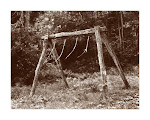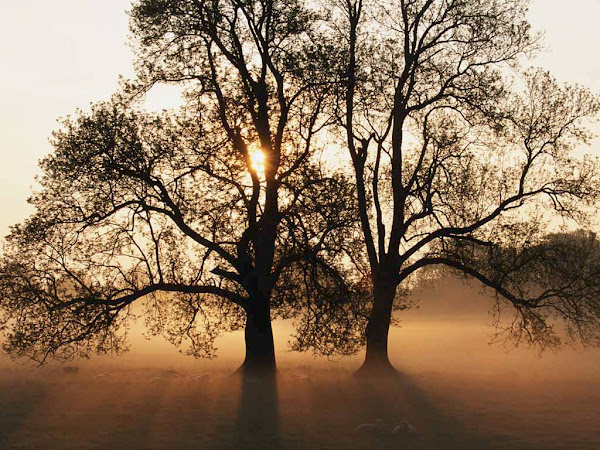Facing Regret, Failure, and Loss
I know all to well the haunting silence of grief observed. I feel much more conformable tracing the shadows of faith, & the in-betweeness of life’s moments of clarity than the purported absolutes. The dark night of the soul can take a lock on my heart and hush all articulations of certainty. Melancholy is a sweet wine that overcomes my bravado and allows me to sit near childlike on the floor pouring out my litany of lamentations.
But alas, shame generally wins out and I retreat to my searching giving off an air of discovery that I emulate from self help books, authors who appear to have discovered this technique for not only calming the beats within but taming and domesticating their fury. After all, leadership must be this confidence that comes from knowing for certain does it not?
This is not an essay on feigned certainty. It is a journey into the grayness of vision and insight created by regret, loss, and failure. Over the years, it has been the authors that track this brokenness that have most intrigued my soul. From St. John of the Cross, author of Dark Night of the Soul to moderns like Brennan Manning, et. al. , I have come to honor those who are willing to make their fame their shame. Shame in the sense that it is their weaknesses, their confusion, their lack of knowing, that they offer up as prayer of sorts.
It has been said that in a post Christian culture, humility may be the most powerful posture a Christian can take. Given the shear amount of knowledge concerning the human experience from other faiths, psychology, the social sciences, biology and physics, it would behoove those who believe to share their unbelief as well.
My unbelief raises its continual questioning during moments of true vulnerability when I am willing to articulate my doubt, expose my sin, offer up my hopelessness, and reveal my inability to make sense of it all. These emotions and states of the soul seem to reveal themselves when regret, failure, and loss push their way into my heart’s view and nearly blind my faith.
I am not sure if I have very read a book on regret. Given the theological perspective that God can find glory in all things when He is allowed to do His work, some would then take the condition of regret and make it a useless emotion. Many would make it a period of the soul's journey that is passing and therefore needless to investigate. I am not sure about this seeming disdain towards regret as it appears that compunction is a condition of the heart that may actually see very clearly. It is condition of the soul that takes into account the power of sin, the falleness of humankind, the morality of the soul, and inability of the heart to truly be certain that all that could be done was done.
Living in this sense of failure can blanket the soul with depression. It can speak darkness into the heart and kill all dreams. But it can also unveil the dreams that the heart contains. What we most regret is often what we most dreamed would come to pass. Regret is often a gold mine of insights into the very substance of our deepest humanness. It tells of us of our uniqueness. What we are sad about tells us something about what we long for. What we long for tells us something about the trajectory of our soul’s journey. Are our hearts desires His? Is our journey walking along the paths He would choose for us> Is the regret a message to tell us of the ultimate emptiness of all things attainable?
The story is often told where an older person is asked what they would have done differently in life and the answer is “take more chances.” It seems like that statement is really full of regret. The chances may symbolize this unwillingness to step out of the comforting habits and inertia of life to risk failure and loss. Therefore looking at failure and loss and regret may tell us something about our souls. It has been said that discovering what you are proud about will often reveal the most fertile part of one’s soul. Fertility is the sense of potential for spiritual growth. I would beg to differ. I believe it is the terrain of regret that is the most revealing.
What do we regret doing , saying, not doing, or not saying? What do we wish we would have seen or engaged? What relationship do we long to see healed and restored? Time is the canvas of regret. It is upon time that certain actions or lack of actions begin to color the very eyes through which we see life. Bitterness is usually associated with those who have found that life is cruel, unjust, and unforgiving. For some, this posture of bitterness most accurately reflects the way in which life works. Cynicism, another form of bitterness most accurately describes how humans should respond to a world where loss, failure, and death seem inevitable. Is it possible that when one disallows oneself to have regret they are dulling if not killing the very emotions that fuel their dreams? Could the shadow of regret actually be what makes us human?
It does seem that regret is an inevitability. Who goes through life without some form of loss? Who engages other humans on any level without some form of regret and disappointment being present? Why then do we view regret as a second class emotion or sign of weakness. Indeed it is a sign of weakness? But can this weakness actually be truthful response to the way life actually works? Could it be that be that this response to life is actually the fuel of the imagination? Is this why melancholy is such a powerful emotion in regards to the arts and creativity?
Regret grounds the human soul in its finitude. We are not immortal in the sense that this life goes on in this way forever. Most of us are only vaguely aware of this truth. It may be that that the embracement of this awareness is too much for the soul to bear over a prolonged period. Is the continued dark night of the soul the precursor to depression and eventually insanity? This is not to deify despair or emotional illness as some form of divine trickery or joke placed upon certain individuals. No. I am speaking here of the work that needs to be done in this state of regret that allows the soul to see more clearly its existence, worth, and destiny. I brought up existence for I am convinced that the despair regret brings is different than self indulgent narcissism that is angry that life is just not treating it fairly or given it what it wants. No, regret is seeing many thing at once. On one had, regret is seeing what actually is. In other words, when one is without something it wants or needs , it often is seeing clearly what is not. Seeing what is not can be life changing for denial is the activity of the soul that is unwilling to articulate to the best of one’s ability the state they are in. When we are in the middle of great loss, we often do not want to admit it for fear this pain will go on forever, or that this pain was caused by something we have done, or that we are not going to be protected from future onslaughts of the same kind of painful experience.
My stint in the hospital gave me a sense of this. During a bout with cancer (thyroid) and then the discovering that it had migrated into my lymph nodes, I experienced deep regret over how I had treated my body and found I blamed myself for the disease. I regret not seeing my body as a part of my being. I found myself greatly fearing coming back to the hospital. The pain of IV’s, the silence of doctors and the fear that induced, the lack of friends and family at my bedside, all made the thought of returning deeply frightening. While there I wrote a few of my regrets.
I regret not taking things to God at an early age.
I regret not writing sooner
I regret listening to others who often did not know my heart’s desires
I regret not taking my dreams more seriously
I regret not seeing that life is a shared experience and need not be placed only on my shoulders
I regret not spending more time with my father
II regret not journaling more
I regret not being more honest about my need for intimacy
I regret not loving my wife more deeply and passionately
So here I am standing in this sorrow and I realize the words of Jesus, “ Blessed are they that mourn.” So I take upon myself this mantle of lamentation and regret and let a beauty emerge from the ashes. This regret is telling me something about God’s design in my deepest parts. I must wear this dark grey garment to discover its warmth and protection and to discover the honor in my darker passages. A poem/ song whatever....
I want to know the truth
I want to feel the pain
Of memories of things I just can’t change
I am talking of the long hard climb
And the passing of time
As I’m embracing the grey of my life
All those dreams
That slipped right through my fingers
Only just one step away
And all those fears
That I am an impostor
Caught without a thing to say
Friday, July 25, 2008
Subscribe to:
Post Comments (Atom)




No comments:
Post a Comment